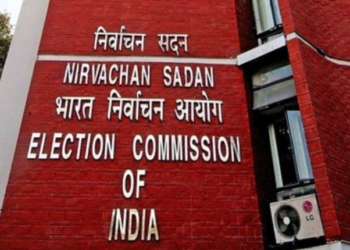New Delhi: The Supreme Court on Monday set aside the Karnataka High Court order, quashing the decision of the full court to dismiss a civil judge (junior division) from service for “gross negligence”, by pronouncing only the operative part without preparing the full judgement.
A bench of Justices V Ramasubramanian and Pankaj Mithal said: “The charges which revolve around gross negligence and callousness on the part of the respondent in not preparing/dictating judgments, but providing a fait accompli, is completely unacceptable and unbecoming of a judicial officer.”
It termed that defence taken by the respondent that the lack of experience and the inefficiency on the part of the stenographer has to be blamed, for the whole text of the judgment not getting ready even after several days of pronouncement of the result in open court, entirely unacceptable.
“But unfortunately, the High Court not only accepted this panchatantra story, but also went to the extent of blaming the administration for not examining the stenographer as a witness. Such an approach is wholly unsustainable. If it was the case of the respondent that the entire blame lay upon the stenographer, it was for him to have summoned the stenographer as a witness. The High Court unfortunately reversed the burden of proof,” said the bench, in strong observations against the high court’s division bench order.
The top court observed that the division bench of the high court by a very strange order, not only set aside the order of penalty and the findings of the enquiry officer but also directed that no further inquiry can be held against M. Narasimha Prasad, who was dismissed from service in 2009 following a decision by the full court on administrative side. Prasad was appointed as the civil judge (junior division) in 1995.
The bench said the opinion of the high court in paragraph 26 of the impugned order that the acts of omission and commission attributed to the respondent do not constitute grave misconduct, is “very very curious”. It further added that adding fuel to fire, the high court has recorded in paragraph 36 of the impugned order that “dismissing him from service itself is very atrocious”.
“Such a finding is nothing but a veiled attack on the Full Court of the High Court. After holding so, the High Court has gone to the extent of certifying the respondent as an innocent and honest officer. We do not know where from the High Court came to such a conclusion,” said the top court.
The charges against the judge included that he allegedly pronounced the operative portion of the judgment in open court without the whole of the judgment being ready. “Once those charges which revolve around the manner of disposal of certain cases are ignored, what remains are certain serious charges that revolve around pronouncement of operative portion of the judgment in open court without the whole text of the judgment being ready,” said the bench.
The top court stressed that this is very serious in nature and the reply given by the respondent to these charges is wishy washy. It noted that the high court order shows that it was swayed away unduly by the animosity attributed by the judge to a member of the local Bar and the assistant public prosecutor.
Setting aside the division bench order, the top court said: “We have not come across a case where the High Court, while setting aside an order of penalty has held that there shall not be any further inquiry against the delinquent. But in this case, the High Court has done exactly the same, creating a new jurisprudence.”
(IANS)















